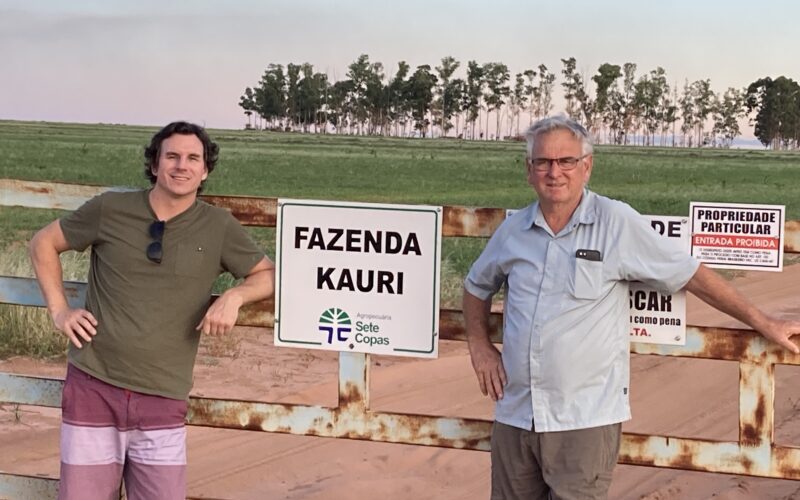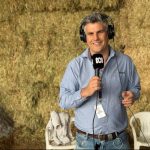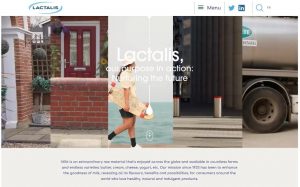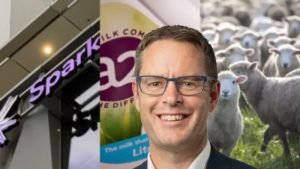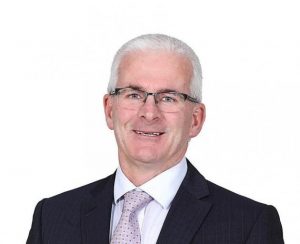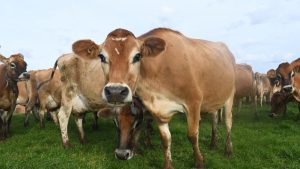
Douglas family from Northland runs over 2000 Kiwicross cows on two farms in southwestern Bahia State.
Brazil’s dairy industry is changing rapidly and a small group of New Zealand-owned farms are highlighting an intensive pastoral dairying approach to expansion.
The Douglas family from Northland, along with several investors, has been 12 years in Brazil and now runs over 2000 Kiwicross cows on two farms in southwestern Bahia State.
They are farming alongside a group of other Kiwi businesses, dairy farms and processing facilities, founded by Simon Wallace and his father David from Waikato.
Murray and Marcelle Douglas’s son Rodger heads the family’s Agropecuaria Sete Copas business with centre pivot irrigated farms with a total of 260 hectares under irrigation.
They are at 1000m altitude with cooling winds, water for irrigation and misting in the covered feed pads to help the cows cope with the tropical heat and high sunshine hours.
Solar panels have been installed over the yards to power the farm dairies and provide shading for the cows.
Water is from a large aquifer about 40m down in the São Francisco basin.
Three wells provide water for irrigation of pastures capable of 45 tonnes dry matter per hectare annually, twice to three times what can be grown in New Zealand.
Hence cow stocking rates of eight to 10 cows/ha, three times that of here, all behind single-wire electric fencing.
Milk production is around 5000kg/ha MS, or 500kg/cow, with 60% from pasture and the remainder from supplementary energy feed.
Pick up by relay of two tankers from a Piracanjuba processing plant 560km away is dedicated to one of the two Douglas farms and a neighbour when 34,000 litres are in the vat ready to fill the tanker.
The other farm supplies Leitissimo, a processing plant on the next farm.
Milk is supplied and paid for on a monthly basis, in full at the end of the month following collection.
Milk prices vary considerably but the larger producers get paid more per litre.

Murray Douglas is impressed by the pace of development of dairying in Brazil and along with equity partners is keen to stay for another decade or more.
Until the recent surge in professionalisation, small family farms of 20 to 40 cows had low investment, no technology and poor quality. That is now changing quickly.
Confinement helps combat cattle pests and diseases, along with a move to North American genetics and maize silage feeding.
“Sometimes NZ dairy farmers and leaders need reminding that our style of dairying is only applicable in limited places around the world.
“The genetic gains in other systems for cows and feed will challenge us as lower cost producers over time.
“Our black cow genetics for grazing are likely making slower genetic progress than those of confined cows given the larger population to select from in North America, Europe and now South America.”
Agricultural loans are difficult to secure in Brazil, so much of the dairy industry development has to be done out of profit-saving.
Primary sector development in roading and electricity supply has been driven by international demand for broadacre cropping, which is significantly improving infrastructure.
Brazil is not yet self-sufficient in dairy products. It imports tariff free from neighbouring countries or with 25% tariff from further afield.
You can now read the most important #news on #eDairyNews #Whatsapp channels!!!
🇺🇸 eDairy News INGLÊS: https://whatsapp.com/channel/0029VaKsjzGDTkJyIN6hcP1K
